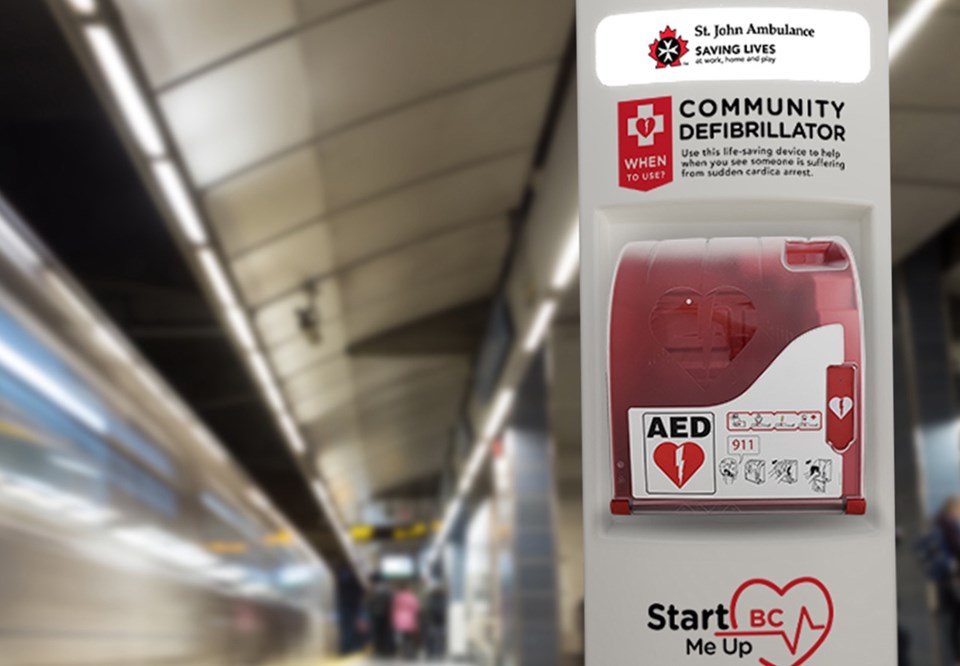It could help save lives at Delta’s outdoor public spaces.
City staff will be reporting back to council on acquiring publically accessible automated defibrillators (AEDs) for outdoor places such as parks.
The devices would be in stands available for people to use if they see someone suffering a sudden cardiac arrest.
Representatives from St. John Ambulance earlier this month made a presentation to council on a province-wide Start Me Up campaign to have 1,000 devices available at outdoor venues.
While Delta has the devices at all indoor civic facilities, they aren’t available yet at their public outdoor venues.
Ken Leggatt, Chief Operating Office for St. John Ambulance, said unlike heart attacks, sudden cardiac arrests can happen to anyone at any time, and can lead to unconsciousness and can be fatal if not treated immediately with CPR and an AED.
Described as user-friendly and having easy-to-follow prompt instructions, the AEDs would also have an accompanying first aid kit in each stand, as well as an intranasal naloxone kit should someone suffer from a drug overdose.
Several outdoor stands have already been installed including three in South Surrey at Crescent Beach and several along TransLink SkyTrain lines.
The St. John Ambulance’s campaign includes an educational component aimed at teaching people how to use AEDs, as well as the naloxone kits, at community centres and other venues.
Coun. Dan Copeland, Delta’s former fire Chief, said it’s an excellent initiative, especially with education to help people understand they don’t have to be afraid to use the devices.
Copeland said he’s hoping the city can work with some of its service groups on the initiative as well as first responders to identify the best locations.
Each stand costs about $7,500.



